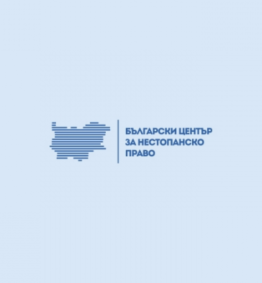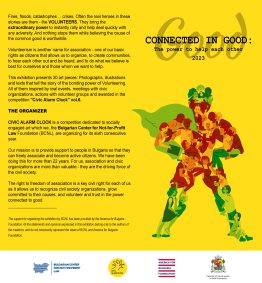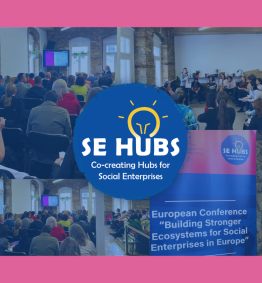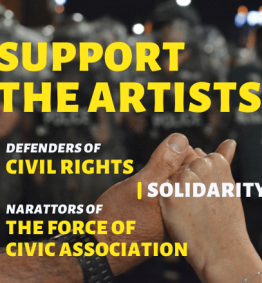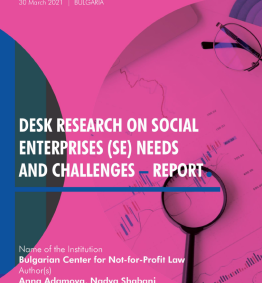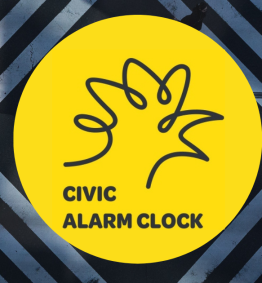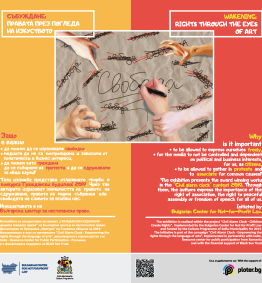All
CONTRACTING OF SOCIAL SERVICES BETWEEN THE STATE AND THE NGOs England, Germany, Poland, Hungary, the Czech Republic and the practices in Bulgaria
The comparative analysis “Contracting of social services between the state and NGO - England, Germany, Poland, Hungary, the Czech Republic and the practices in Bulgaria” presents a research of different models of social contracting in five European countries, which may be applied in Bulgaria.
Learn moreComparing the Experiences of Bulgarian Rainbow Families Caught Between European Union Treaties and National Transgressions
Here you can read the "Off Paper and On-the-Ground: Comparing the Experiences of Bulgarian Rainbow Families Caught Between European Union Treaties and National Transgressions", written by Chanelle Lajoie, intern at Bulgarian Center For Not-For-Profit Law from McGill University (Canada).
Learn moreExhibition “Connected in Good: The power to help each other” 2023
From 3 to 17 July, 2023 the exhibition will attract everyone's curiosity in the Open Air Gallery in the park in front of the Ivan Vazov National Theatre in Sofia. This exhibition features 30 photographs, illustrations and texts that tell the story of the bonding power of volunteering.
Learn moreSE HUBS European conference: “Building Stronger Ecosystems for Social Enterprises in Europe” (Newsletter)
Here is the set of policy recommendations elaborated by the Bulgarian working group during the conference sessions The recommendations contain several identified areas for amending relevant provisions at local and European level. The summary recommendations produced by the 4 working groups of the conference will be published soon. ______________________________ The material is prepared in the framework […]
Learn moreFundraising campaign of BCNL
Support the artists - defenders of civil rights now with a donation to our campaign in PLATFORMATA.BG
Learn moreDesk Research on Social Enterprises Need and Challenges – Report
Generally, social enterprises are a specific group of enterprises that meet certain requirements regarding the purpose of their activities and the way their activity is being organized. The combination of social aim and entrepreneurial activity makes them unique subject that operates at the border of the public and business spheres.
Learn moreExhibition “AWAKENING: Rights through the eye of art” 2020 /vol.3/
The exhibition presents stories from the pandemic in 2020, captured in 20 photographs, illustrations and texts by 16 distinguished authors in the third edition of the competition for socially engaged art „Civic Alarm Clock“ 2020.
Learn morePosition of civic society organizations against attempts of political parties and their leaders to exercise pressure over the civil society
On September 30, 2019 in the course of the election campaign for local elections, the nationalist party IMRO-BNM has sent a signal to the Prosecutor General to cease the activity of the human rights organization – Bulgarian Helsinki Committee. We consider such public attacks for inadmissible, they erode the public trust in the nongovernmental sector and they are used for political purposes which contradict the public interest.
Learn moreExhibition “WAKENING: Rights Through the Eyes of Art”
The exhibition presents the author's award winning photographs, illustrations and texts in "Civil Alarm Clock" 2019 contest. All art works tell about real events and reflect the personal attitude of the creators to the power of civic association for common causes, the energy of the protests and the people in them, the meaning of freedom of speech and the struggle for it.
Learn moreIncapacity to Act of Natural Persons. Contemporary Challenges, Sofia, 2016
The monograph "Incapacity to Act of Natural Persons. Contemporary Challenges" by Stoyan Stavru is a study of civil-law matters of incapacity to act of natural persons in the context of the proposed reform of Bulgarian personal law. It examines the boundaries of the potential contained in the legal notion of interdiction as an approach of restriction and exclusion, as well as the opportunities to have it replaced by a diverse set of supportive and inclusive legal tools.
Learn more

